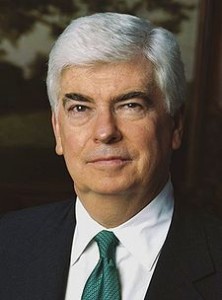MPAA’s Dodd: ‘Hollywood pro-technology and pro-Internet’
February 23, 2012
By Colin Mann
 Following the stalling of the SOPA and PIPA anti-piracy measures in the US Congress, largely in response to activist claims of Internet censorship, Senator Chris Dodd, Chairman and CEO of the Motion Picture Association of America (MPAA), has continued to offer a more conciliatory approach to the technology community, while still stressing the importance of combating piracy and protecting the creativity of thousands of American artists and content creators.
Following the stalling of the SOPA and PIPA anti-piracy measures in the US Congress, largely in response to activist claims of Internet censorship, Senator Chris Dodd, Chairman and CEO of the Motion Picture Association of America (MPAA), has continued to offer a more conciliatory approach to the technology community, while still stressing the importance of combating piracy and protecting the creativity of thousands of American artists and content creators.
Addressing the Atlanta Press Club, he discussed the importance of the Georgia entertainment industry to the state’s economy, and the diverse array of jobs created in the state through film and television production, suggesting that the economic benefits of film and TV production were not limited to those who work on the shows and movies. “In Covington, production of The Vampire Diaries can mean 2,500 hotel rooms filled. Across Atlanta, owners of small office buildings and warehouses who have been unable to find tenants in a tough economy are renting them out as sets. Restaurants and caterers, drug stores and dry cleaners – when a production comes to town, everybody benefits,” he noted.
Dodd highlighted how crucial the partnership between the content and technology communities would be to preserving an open Internet while also protecting the creativity of thousands of American artists and content creators. “Let me be clear: Hollywood is pro-technology and pro-Internet. I firmly believe that our industry cannot survive without the innovations that come out of Silicon Valley every day – and I know that we must have a free and open Internet to keep those innovations coming” he admitted.
“But it works both ways,” he advised. “As a letter signed by the American Civil Liberties Union and the online activist group NetCoalition stated: ‘A strong system of copyright protection for online content is critical to the continued success of the flourishing Internet marketplace of ideas.’
He pointed out that the fight against foreign rogue websites was hardly confined to pirated films and television shows. “In short, these are trafficking in dangerous fake products that can harm American consumers. And the criminal activity doesn’t end there. These sites often look just like legitimate websites that use valid methods of payment, which means many Americans use them unintentionally without realising they’re criminal – and when they enter their credit card information, they are vulnerable to identity theft,” he warned.
“There is a broad consensus – one that includes us in the film and television industry – around the idea that we must keep the Internet free and open. But there is also a broad consensus around the idea that we must act to stop the theft of intellectual property online,” he stated.
